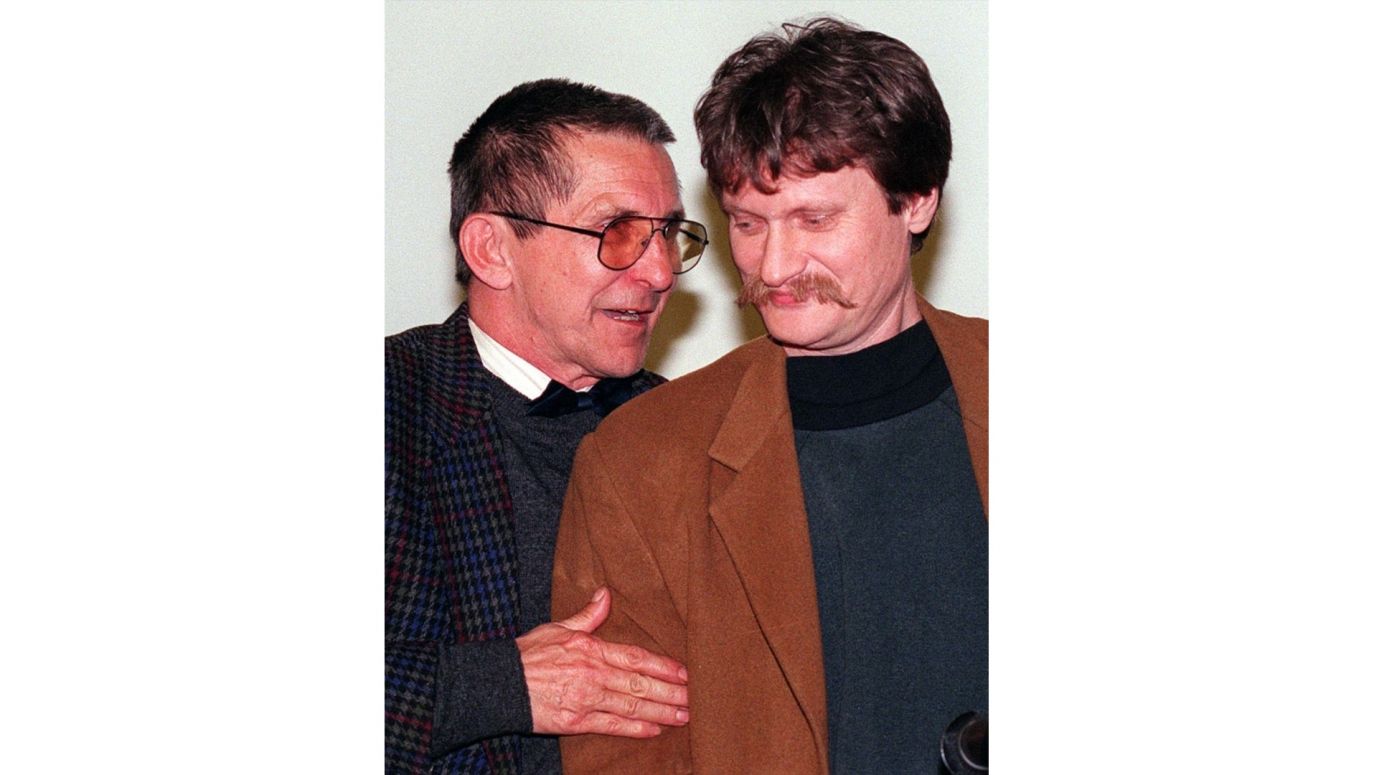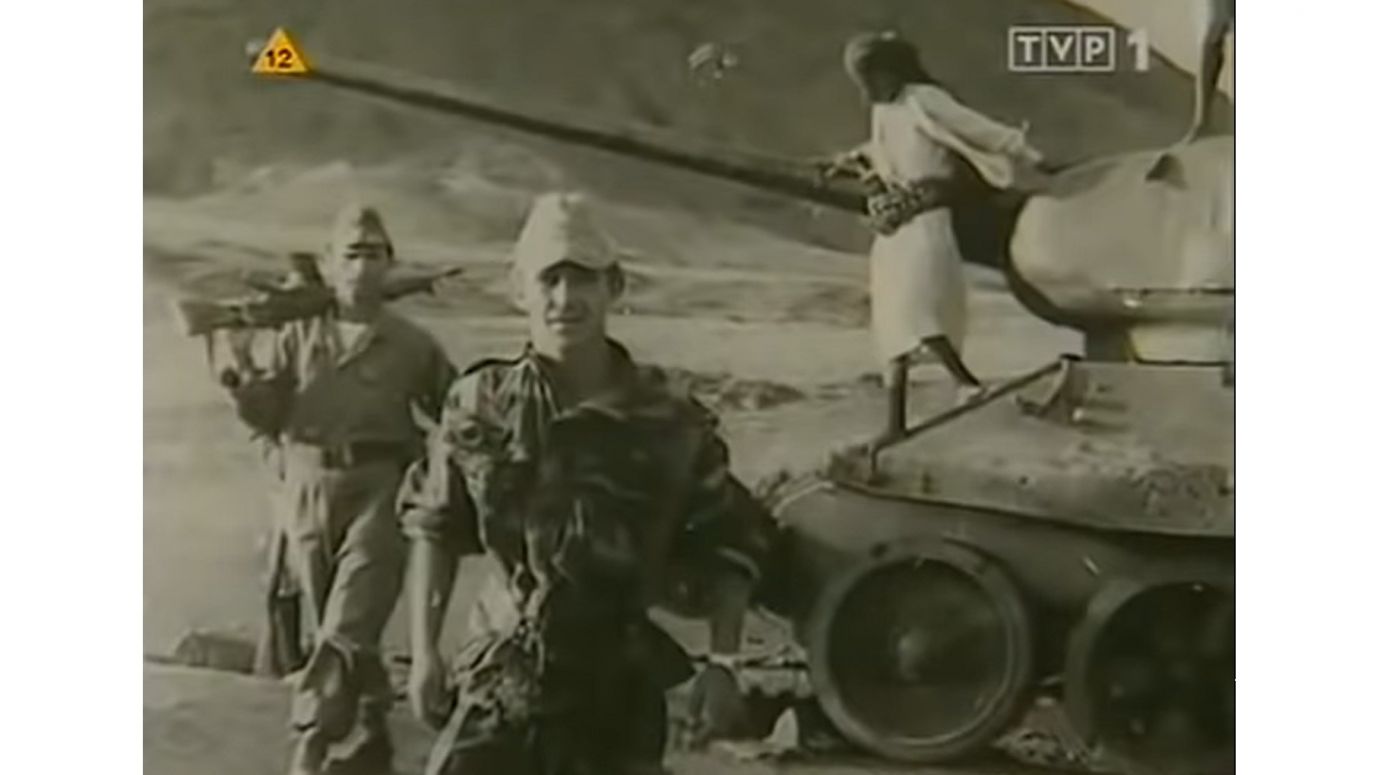Mercenary who waged a personal war against the Soviets
24.05.2023
Anti-communism was taught to him by the communists. He talks about it in my film, giving the example of a communist throwing a hero of the Warsaw Uprising, a cripple without a leg, down the stairs," says Piotr Zarębski, director of the documentary 'A Gun for Hire' about Rafal Gan-Ganowicz.
Was it difficult to get the money for the film 'Gun for Hire'?
I expected that it would be very difficult for me to get funding for such a film in the Poland of that time, because I had already experienced the perplexities of censorship, following a film about Solidarity. The media were controlled by left-wing circles and great care was taken to ensure that nothing but official propaganda got into the public domain. The truth about the Round Table, for example, could not be communicated. For about two years, I asked various editors for funds that would enable me to produce an interview with Rafal. Finally, in the Documentary Films Editorial Office of Channel 1 TVP headed by Andrzej Fidyk, I got a promise to finance a trip to France with a crew. He suggested to me that, when making the footage, I should aim to show Gan-Ganowicz as "a guy running around with a gun and shooting black people".…
The documentary was made in 1997, but there were problems with its broadcast on TVP. Why did this happen?
There was one truth in Poland at the time - the communist and post-communist roundtable narrative, protected by propaganda in both state and private media. My film touched on the essence of communism. Based on historical facts, it showed that communism is always a criminal ideology. To say that communist crimes are a perversion of this supposedly beautiful idea is a lie. There are no facts to support this claim. The strong point of my film was also the expressive character. I think this was feared and the film became another one that the censors refused to broadcast.
After all, censorship ceased to operate in Poland in 1989.
Officially yes, but in practice it was still there. It worked in secret, in the collation room, in the privacy of TVP, done by the hands of trusted directors.
Why this conclusion?
From the content of the film's collaudation, which was recorded and made public. The journalist Andrzej Potocki, after reading the transcript of it, stated that it was not a colaudition but an execution of the director.
But nevertheless, TVP aired the film and in very good airtime. In addition, it broke the TV schedule, which is rare and is used for important and unexpected events.
This only happened because I was a co-producer of the film and had some journalist friends who publicised the censorship issue. Numerous screenings of the film featuring Rafał Gan-Ganowicz, with cinemas filled to the brim, forced TVP to broadcast the film, without cuts and in prime time. "'Gun for hire' was aired without any announcement, and it was impossible to find out about it from the TV programme. The viewing figures were low at the beginning and very high towards the end. People passed on information about it by phone.
Do you remember Rafal Gan-Ganowicz's appearance on the news programme of Monika Olejnik, who was still working at TVP at the time?
Yes, it is worth TVP recalling him. Rafal showed her that she had not prepared for the programme, did not know the subject of the interview and, above all, had not watched the film about him.
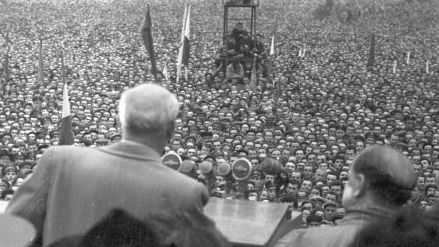
A quarrel within the family with a brawl at the Belvedere may have had a Hungarian ending.
see more
Why didn't he agree to fight for communist Cuba for huge amounts of money? He could have fought in the communist guerrillas side by side with Ernesto "Che" Guevara.
For several reasons. He did not fight for money; his aim was to fight communism. After all, General Władysław Anders had accepted him into the officer corps of the Polish Army. During the Cold War, in secret bases across Europe, the West trained commandos to support the resistance movement in Poland should World War III break out. It fell to France to train the Poles. Rafał underwent a comprehensive military course at a French commando base between 1955 and 1957. Training took place in secret when the bases were empty due to holidays. Sometimes the training lasted a week and sometimes just a weekend. During explosives handling training, the instructor made a mistake and accidentally blew up a large hangar. It could not be cleaned up or rebuilt in two days. When the French soldiers returned to the base, they could not understand what had happened....
Did he tell you about other wartime adventures than those he described in 'Condotiers'?
He talked a lot; I regret not writing down or recording all his stories. He came up with the idea of bringing Polish wartime emigrants to the Congo. He could not come to terms with the way Poles who could not or did not want to return to their communist country were treated in the West after the Second World War. These were not only military men, but also engineers, scientists and doctors. Poles fought in the defence of the West, but the Allies treated them badly after the war, directing them to the worst and least paid jobs. The best example is General Stanisław Maczek, who had to work behind a bar to make a living in Scotland. Raphael knew that the Congo was a country with many natural resources, but exploited by French and Belgian colonists, which contributed to the popularity of communist and liberation movements among the indigenous people. Raphael believed that he would bring Poles there who would not exploit the country like the colonists, but would contribute to its development. It was to be a 'promised land' for Poles without a country of their own. He floated visions that the Congo would be an economically friendly country for a free Poland.
Has he taken steps in this direction?
After receiving permission from General Władysław Anders, he met the Congolese leader and president of the secessionist province of Katanga, Moïse Tshombe , who was then in hiding in Spain. His whereabouts were secret for security reasons. Nevertheless, Tshombe managed to reach him and present a plan that Tshombe liked very much. Tshombe, while in exile, was preparing a military counter-offensive to liberate the Congo. They agreed with Rafal that when he took power in Congo, they would start bringing in Poles to take up dignified positions. Unfortunately, in 1967, a plane carrying Tshombe flying from Spain was hijacked by agents of the French secret service SDECE (although the Americans are also said to have had a hand in the operation) and forced to land in Algeria. There, Chombe was imprisoned and died in unexplained circumstances in 1969.
Gan-Ganovicz in the Condotiers described the fighting in Yemen as follows: "Measurement. Radio. Target: the Party House. Four shells to shoot up and .... on target - reporting. - The first ones burst in the attic, the next ones on the floors. I watched through strong binoculars as windows flew out of the building, explosions flashed in clouds of smoke. Party members and people in uniforms were jumping out of the windows. Soviet uniforms. (...) In a little-known country, in a war that hardly anyone had ever heard of, for the first time in many years - it was once again given to a Pole to face the Red Army with a gun in his hand. A blessed fate. My colleagues were surprised that I listened to the howling of the Katyusas with a smile and that my hands holding the binoculars were trembling. - 'Give him a break,' said Georges. - He has his personal scores here'. He has settled his personal scores with the Soviets?
Yes, but he warned against poisoning the carcass of the Soviet elephant.
And what was it like with the famous saying attributed to him: "I don't know what it's like to kill a man, I've only killed communists"? Did he really say that?
I have never heard him say that. I think it is not true. I don't think he talked to anyone, apart from his family, for as long as he talked to me during the long holiday evenings in Brittany and later also in Poland. Many insecure and fame-hungry people tell invented stories about Rafał because they want to make a name for themselves in the public sphere. That's how it is with eminent figures that they arouse envy and jealousy. And Rafal was an exceptional figure. Maybe one day we will see a feature film about him. The Americans would have made one long ago. I was passionate about the soldier stories of Polish émigrés, but I was not in favour of doing soldier duty with a gun in my hand. Not having been in the army, I was allergic to guns and the army because I associated them with the communist army and agents. And it was from such positions that I spoke to Rafal, wanting to understand what guided him in his mercenary service.
And what was he driven by?
The principle of just war. He fought communist ideology wherever he could, seeing it as a threat to the freedom of future generations. Rafal said he disliked war because, apart from soldiers, innocent civilians died in it. He only fought against armed opponents, and usually against better-armed ones. In the Congo he captured 42 tonnes of weapons! Thanks to the dissimilarity of the soldier-creator, we became very friendly.
What was his life like in retirement?
After the wars in the Congo and Yemen and his divorce from his wife, he was busy raising his growing daughter. He used his engineering skills as a coffee machine serviceman. He was also a Polish language teacher at a Polish school in Angers near Paris. He was involved in the life of the Polish community in France. At the end of the 1980s, he was, among other things, general secretary of the Association of Polish Veterans and Their Families. When his daughter got married, he made a living by renovating flats and houses in the provinces. He lived in such a house in the Vendée during the first filming. He then settled in Brittany, near Dinan, in a barracks adapted for housing purposes - literally a 'Drzymala wagon' without comforts. There, in 1998, my wife and I spent one of the most beautiful holidays of our lives. We became very good friends. We had great late-night conversations about everything, usually over a little whisky.
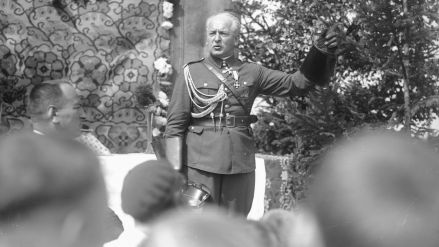
Sometimes the “American Dream” turned out to be an American nightmare…
see more
Could he live without adrenaline?
He did not have the adrenaline rush of his famous colleague and predecessor in the Congo, Captain Kowalski, who tried to settle down. He got married and was compensated for his injuries, with which he bought a hotel in the Canary Islands. After some time of normal life, Kowalski's wife found a letter on the table in which her husband wrote to her: "Forgive me, I love you, but I can't stand this kind of life. I am bored. I'm going where I haven't been before, don't wait for me. People like me never come back." Let us remember that this was the war generation, scarred by the tragedy of that period and it was not easy for them - as we understand it - to live normally.
Or was it the wartime experiences of childhood and youth, the risk gene and the thirst for adventure that made Rafal Gan-Ganowicz who he was?
Experiences always have an impact on a person. However, the strength with which they influence the formation of a person's later attitude depends on the sensitivity of the person in question. Some people shut themselves away, while others act. Here, it is important to emphasise the role that family upbringing plays in this process, but also the influence of the wider environment, its traditions and faith. They shape a person, they constitute a certain model, a cultural rhythm. This is why the communist ideology, seeing this as a direct threat, was based on cutting man off from history, from family upbringing, from his roots. Anti-communism was taught to Rafael by the communists. He talks about it in my film, giving the example of a communist throwing a hero of the Warsaw Uprising, a cripple without a leg, down the stairs. Rafal mentioned to me about his fellow Congolese - including Captain Kowalski, Sergeant Konopka, Sergeant Jozef Swara, Captain Stanislaw Topor-Staszak, Lieutenant Count Stanislaw Krasicki, Sergeant Roman Wiatra - that it was their will, even their duty, to continue fighting. They experienced what the Second World War brought, but they also saw the threat posed by the spread of communist ideology. They could not pass by indifferently what was happening in the world.
Why did he not appear on Radio Free Europe under his own name, but under the alias Jerzy Rawicz? He had worked there since 1985.
Radio Free Europe (RWE) did not want him to appear on its airwaves for reasons of - as we would say today - political correctness. They did not want a mercenary to appear with his columns, so as not to give the communists a pretext to proclaim that an alleged murderer was working there. But political correctness caught up with Rafal anyway as the Round Table approached. It was then decided to move him away from the microphone. RWE took the option of not obstructing the so-called opposition's dealings with the communists. As Rafał told me: RWE consulted with Michnik about who was to appear on air... I don't know if this is true, but he was removed from the broadcast. Maybe Bronislaw Wildstein could say more about this, because he was friends with him and they worked together.
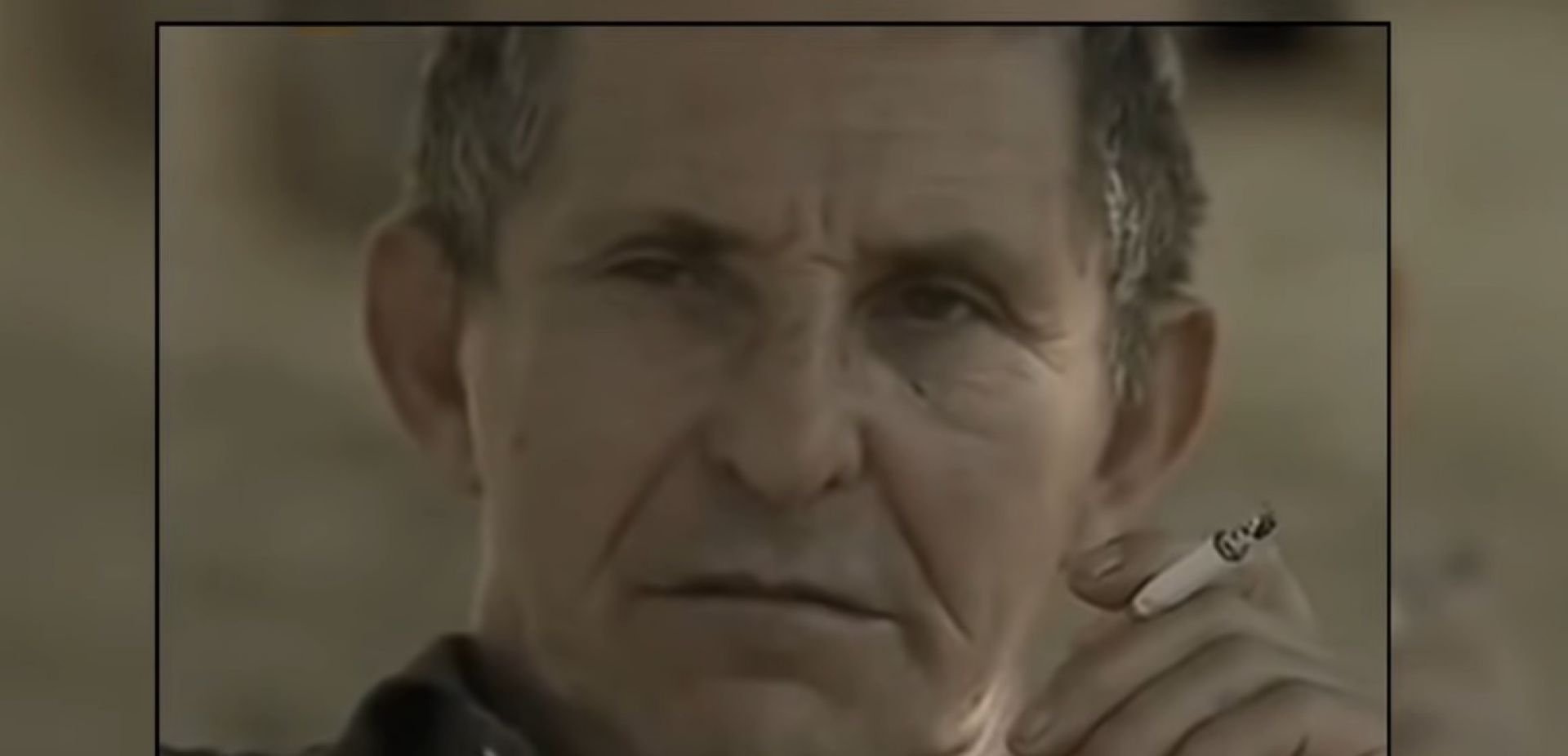
 SIGN UP TO OUR PAGE
SIGN UP TO OUR PAGE
 How did the idea for a film about a Polish 'dog of war' come about?
How did the idea for a film about a Polish 'dog of war' come about? 